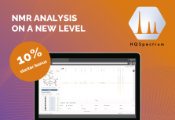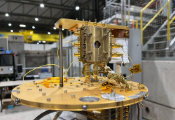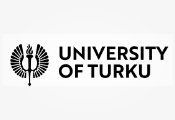A Quantum Computer That Can Be Carried as Hand Luggage
Quantum technology can bring us computers that can solve complex problems quickly, but currently the devices are still large and susceptible to failure. To accelerate their development, the German Agency for Innovation in Cyber Security announced a competition with an ambitious goal: to develop the first mobile quantum computer.
The project is in the penultimate phase, in which three applicants are already implementing their concepts. This includes the Innsbruck-based company ParityQC, which will develop a mobile quantum computer with the Australian-German company Quantum Brilliance. The contract value for the three applicants is 35 million euros.
The device is to be used in the areas of security and defense, but also in civilian scenarios, such as for encryption technologies to protect critical infrastructures. The prerequisite is secure and reliable computing power, even in remote environments.
Diamonds as a solution
Making quantum computers mobile is a complex task, because currently the devices are not only very large, but they are also sensitive to temperature, radiation and other sources of interference. “That is why it is a challenge to operate them in controlled environments such as high-performance computing data centers” explain Magdalena Hauser and Wolfgang Lechner, co-CEOs of ParityQC, which was supported by Austria Wirtschaftsservice AWS among others. This is a hurdle that research partner Quantum Brilliance has already overcome – with quantum processors based on synthetic diamonds.
The robust atomic structure of diamonds enables miniaturization and energy-efficient operation. In contrast to conventional quantum PCs, which have to be cooled to three-digit minus degrees in order to function properly, the diamond quantum accelerators operate at room temperature. The low energy consumption is important for mobile use, as the power supply in the field is often limited.
New type of coding
Existing miniaturized quantum computers are prototypes and enable, for example, the experimentation of algorithms. However, the current project is designed to solve real-world problems, such as in logistics, when many packages need to be brought to different locations and the delivery route needs to be optimized, explains Mark Mattingley-Scott of Quantum Brilliance.
The coding of complex problems requires many computing units (qubits). This is why the race for the best quantum computer has so far been dominated by more and more qubits. At the same time, large systems were created that were no longer scalable – and this is where ParityQC’s technology comes into play: Lechner looked at the problem from an architectural perspective for the first time and solved it with a joint approach for hardware and software. The result was a new way of coding optimization problems that creates scalable quantum computers and radically reduced control complexity.
Over the next two and a half years, the research partners will develop an independent architecture for diamond-based quantum computers and drive forward the miniaturization and scaling of the hardware. This is the first time that miniaturization is the focus and not just the increase in qubits, and this requires a completely new way of thinking – but it is inspirational, says Lechner.
In numbers
30 x 40 x 60 cm. That’s roughly the size allowed for hand luggage on airplanes – and this is also the size that the mobile quantum computer from ParityQC and Quantum Brilliance is supposed to have.
-273.15 degrees Celsius. The electronics of some conventional quantum computers require an ambient temperature of -273.15 degrees Celsius. If the temperature in the computer rises, all information is destroyed.
1000 qubits. The quantum processor that IBM presented in 2023, breaking its own record of 433 qubits, has 1000 qubits. As the number of qubits increases, so does the computing speed.




































